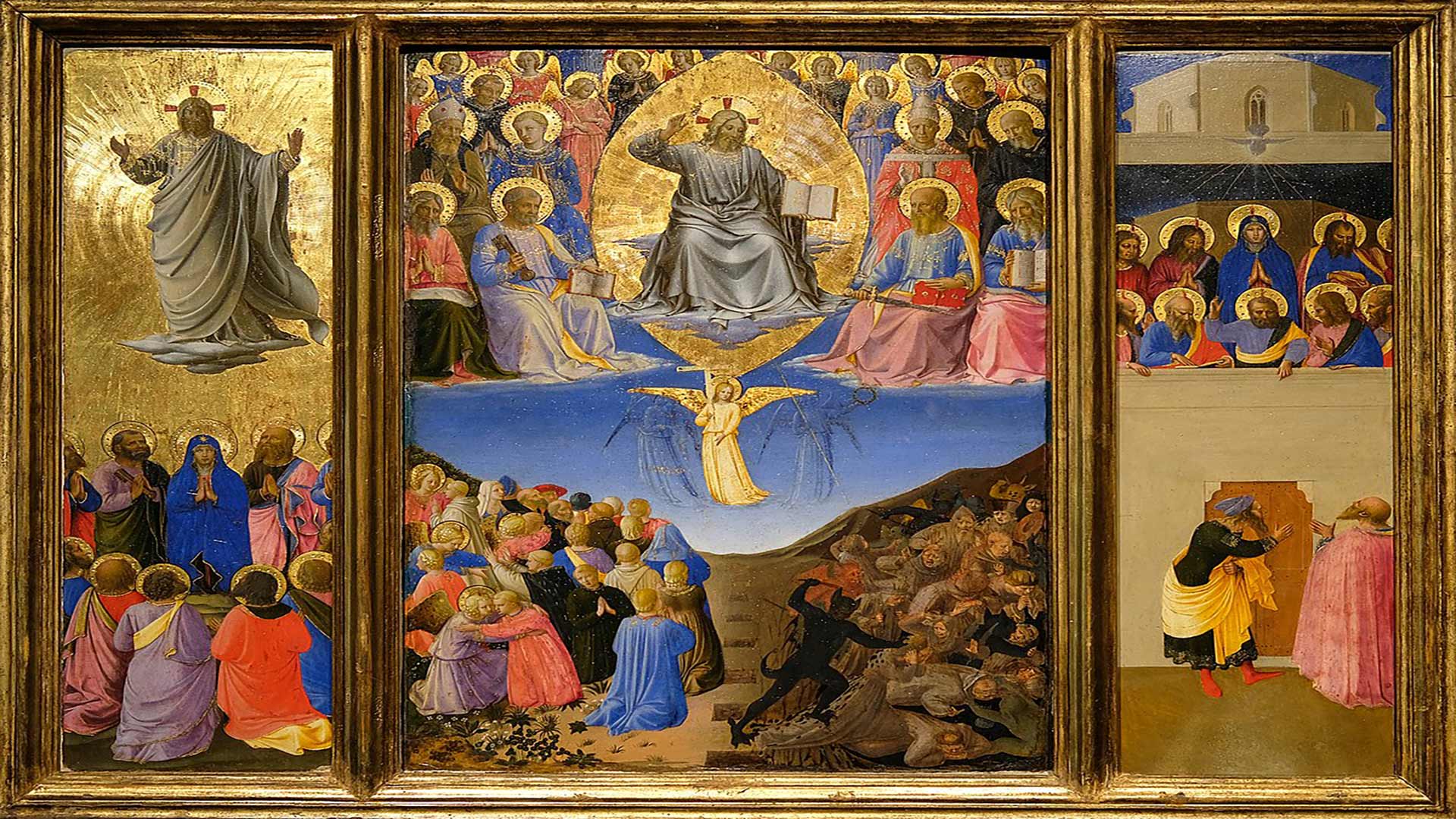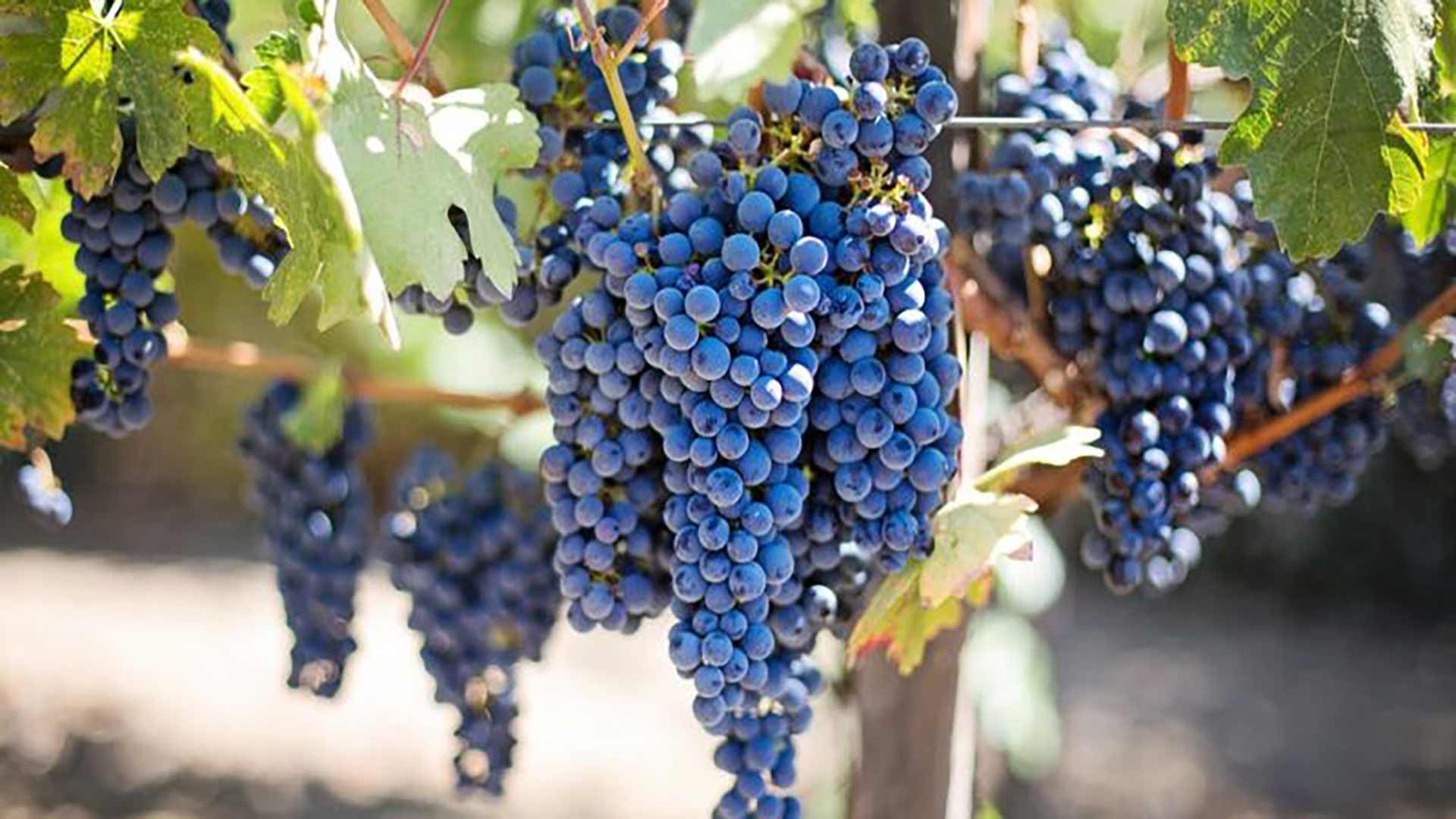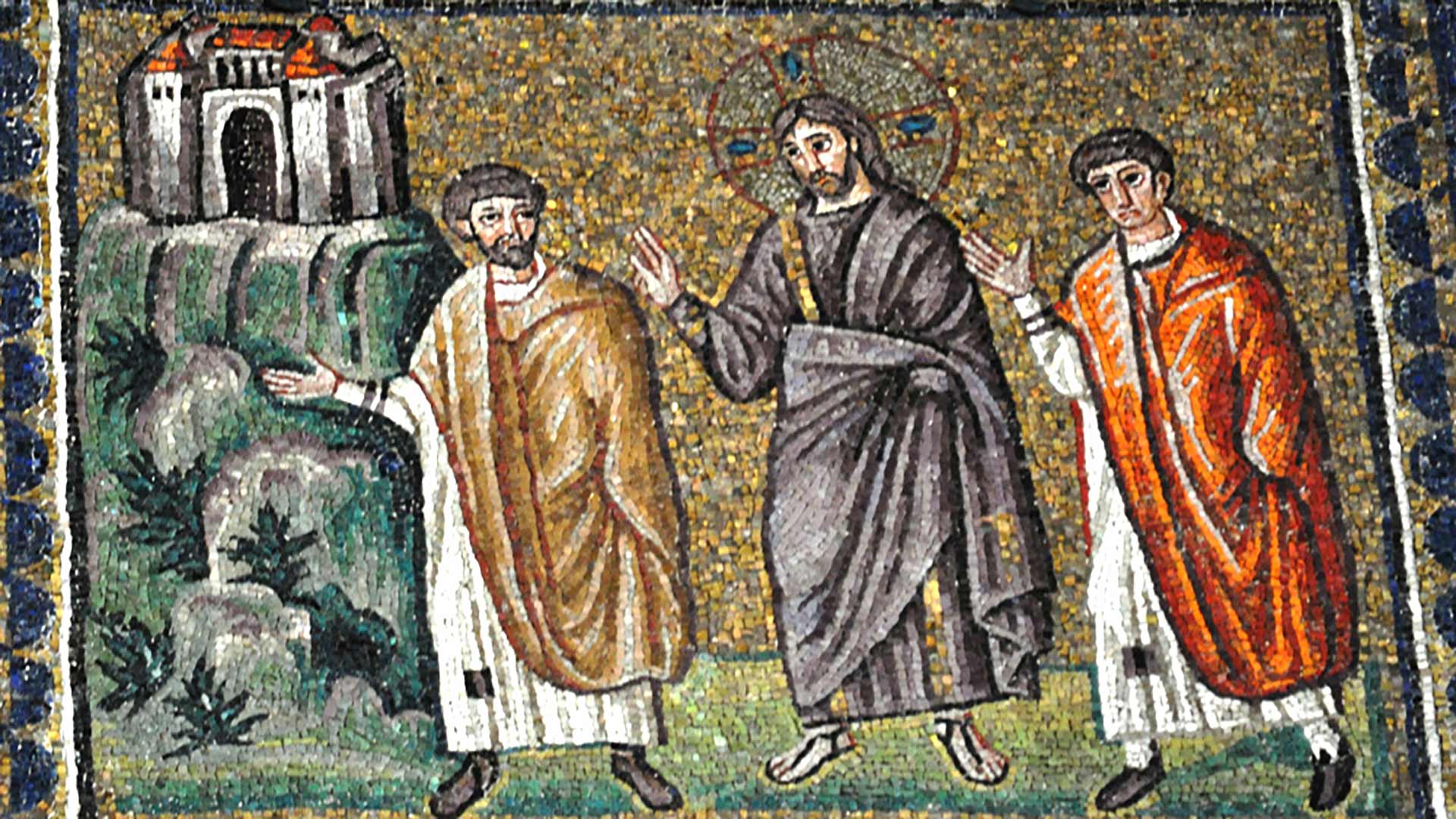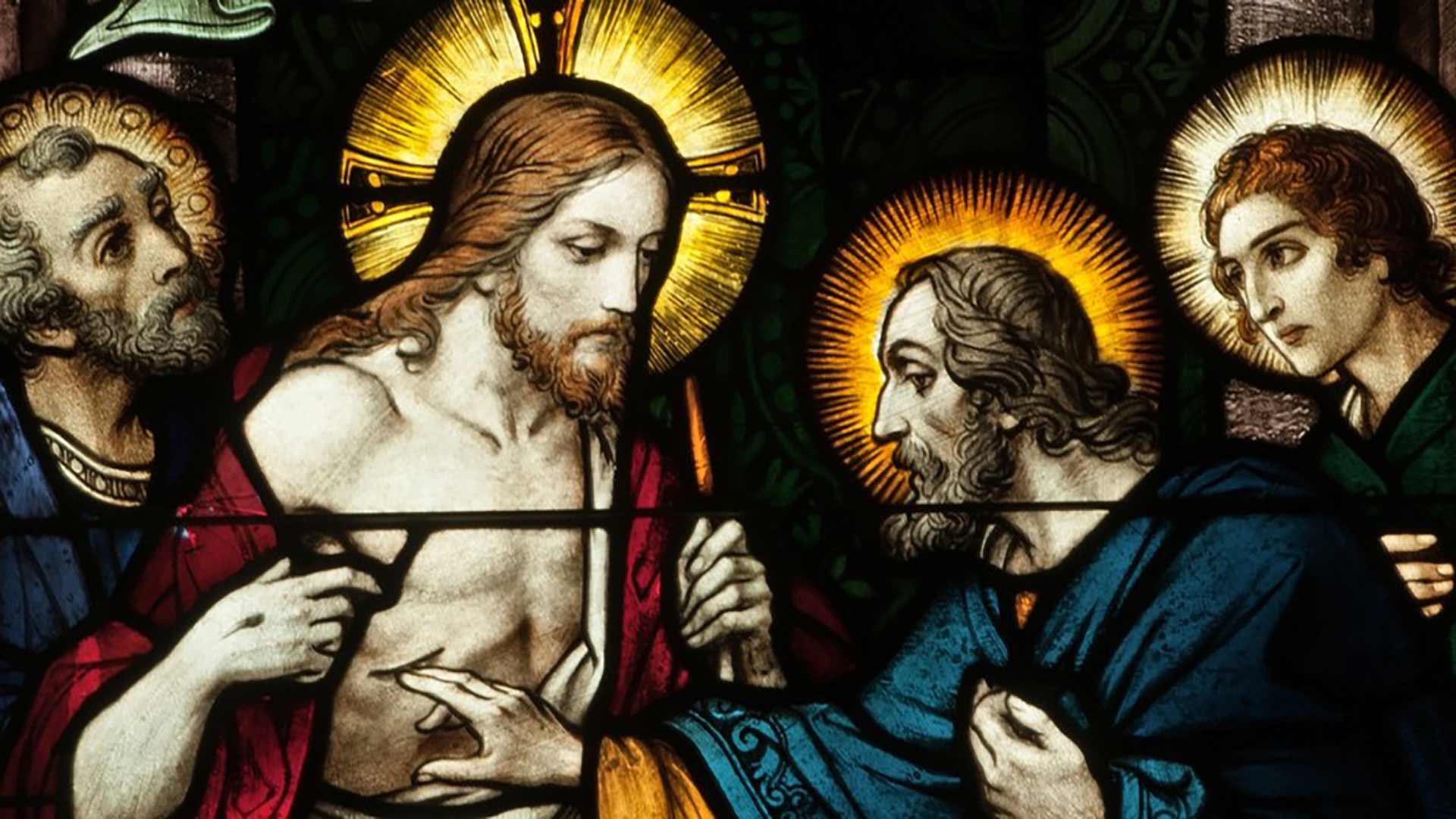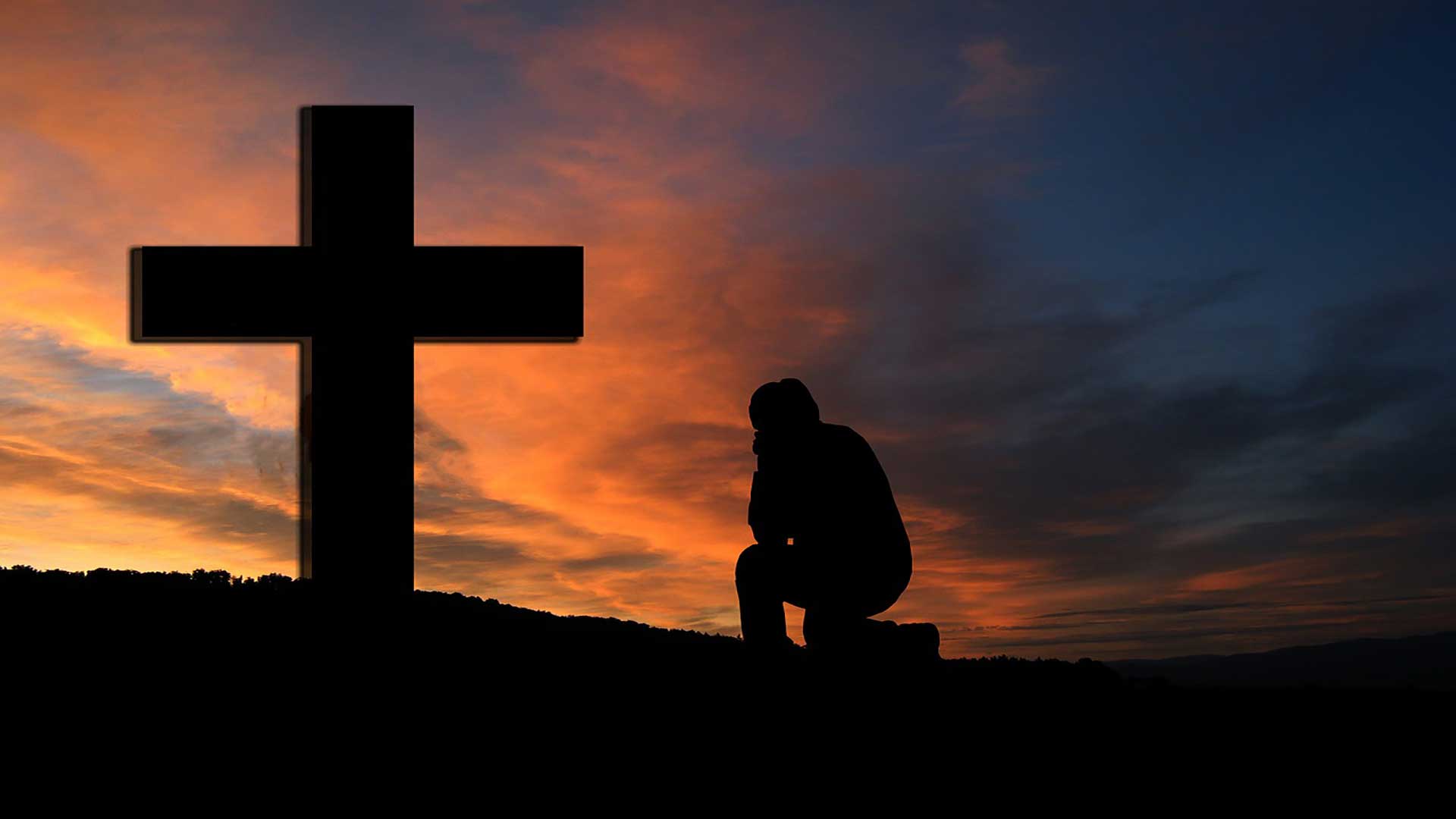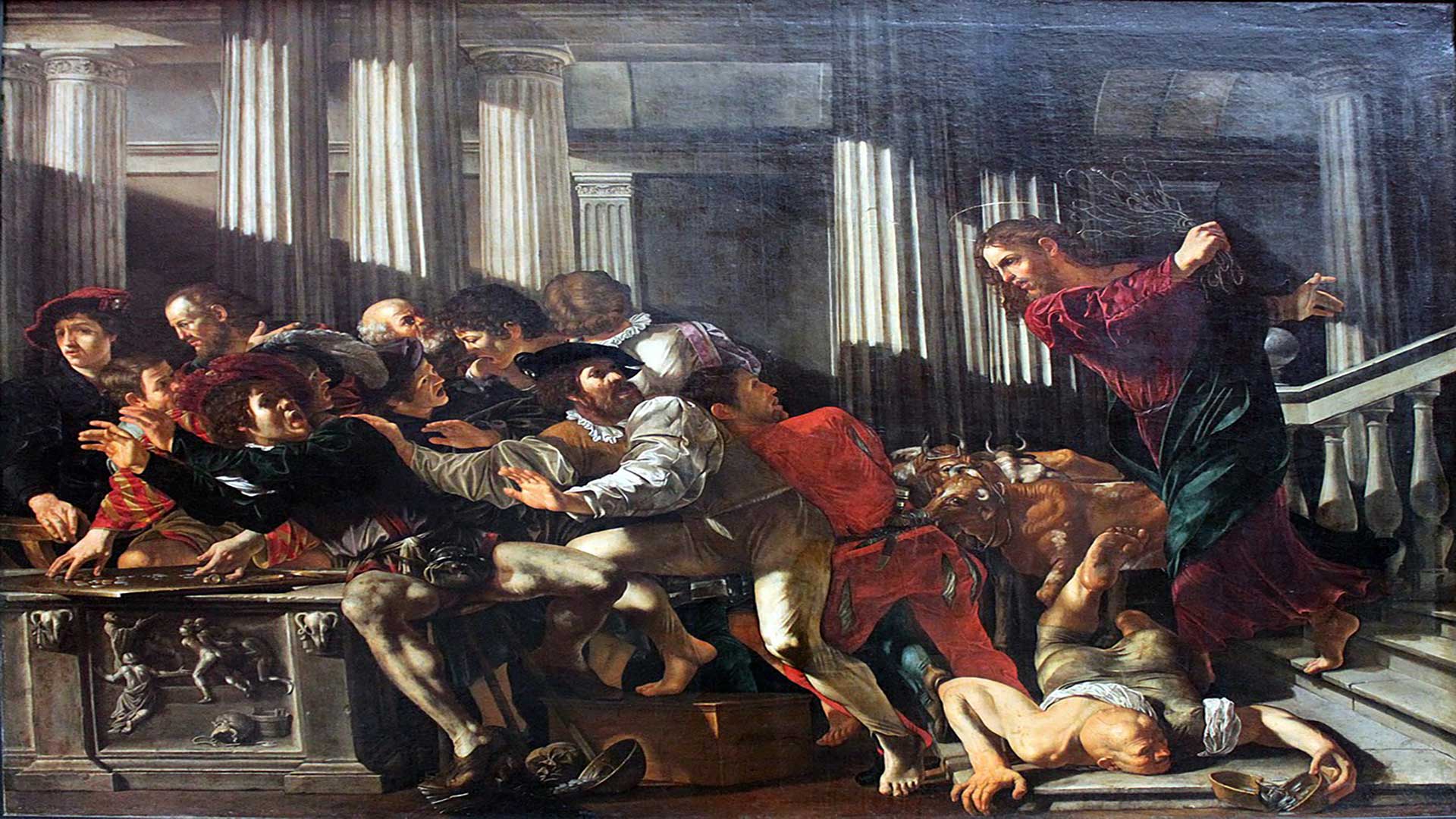The Real Ascension Story
Who would not believe a supernatural occurrence like the Ascension just because he has not witnessed even a pale resemblance of it? While today’s First Reading (Acts 1: 1-11) and Gospel (Mk 16: 15-20) describe the physical event, the Second Reading (Eph 1: 17-23) offers a theological interpretation. The bottomline is that in time those believing in the Lord of the Ascension will also enjoy the same experience.
We must bear in mind that everything about Jesus was supernatural – right from His joyful Birth to His luminous Transfiguration, sorrowful Passion and Death and glorious Resurrection. Unprecedented events they surely were, but always witnessed by many and duly recorded for posterity. In fact, in stitching together details from the evangelists and other writers, we note that differences in minor details make their narratives complementary, not contradictory. So, modern men and women ought not be sceptical but ever more trusting and believing.
Forty days in Galilee
The Ascension came about at the end of Jesus’ forty-day stay in Galilee following His Resurrection. In keeping with a prior promise, Jesus opted for that region (about 125 km away from Jerusalem) only to avoid a potential clash with the Sanhedrin. The Jewish supreme council was waiting to pounce on the newborn Church that was proclaiming their Risen Lord from the rooftops.
How did Jesus spend those forty days? He appeared several times to the Apostles, ‘in ways that proved beyond doubt that He was alive’. Once, at the iconic Lake Gennesaret, he surprised them with a miraculous haul. He was thus a provider of material goods to His inner circle whom the traitor Judas Iscariot had robbed of their kitty. But more importantly, Jesus was a provider of spiritual food. Taking the Eleven aside, He would decipher the hidden meanings of His public discourses.
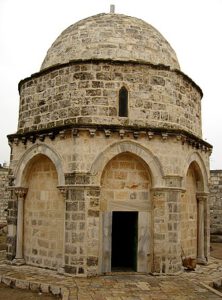
Jesus also took care to set up a second line of leaders. By asking Peter to feed His lambs (beginners in the faith) and sheep (those more mature in the faith), He virtually handed over His baton to the future Pope. Furthermore, to meet His disciples at once, he bade them gather at a mountain nearby. Was it here that Jesus once appeared to more than five hundred (probably from across Jerusalem, Judea and Galilee)? If so, this could well be regarded as the first Council of Christendom!
Were they upbeat about meeting Jesus? When He appeared in flesh and blood, the Apostles fell on their feet in worship, whereas some others doubted. Nonetheless, Jesus moved forward, commanding them to go and teach all nations, baptising in the name of the Father and of the Son and of the Holy Spirit. ‘Teach them to keep all things that I have commanded you, and lo! I am with you all days, even to the consummation of the ages!’ he assured them.
When the day of his departure was close, he met with the Apostles in Jerusalem. They were probably preparing for the Shavuot[1]. There, at His last meal together, He instructed them not to leave the city of David until they had received the Holy Spirit. He showed how the references to Him in the Scriptures – in the law of Moses, in the prophets and in the Psalms – were unfolding.
Then, Jesus rose up and led them to the Mount of Olives. The Apostles followed enthusiastically, believing that He was going to restore the political dominion of Israel. Alas, the more Jesus spoke to them of Heaven, the more they dreamt of life on earth! Our Lord retorted: ‘It is not for you to know the times and seasons which the Father has fixed by His authority. Enough for you to know that the Holy Spirit will come upon you, and you will receive strength from Him; you are to be My witnesses in Jerusalem and throughout Judea, in Samaria, yes, and to the end of the world.’
How ashamed the Apostles must have been for broaching inanities! They walked on in silence, until they came to the top of the hill. There, Jesus lifted up His hands to bless the Apostles. And while He did so, He was seen rising body and soul above the hilltops and fading into the firmament. Tradition has consecrated this site as the Mount of Ascension and Christian piety has memorialised the event by erecting a basilica over the site. An octagonal structure thereabouts, now used as an oratory, encloses the stone said to bear the imprint of the feet of Christ.[2]

Our Ascension
Needless to say, the Apostles were awestruck. Two angels in shiny white garments addressed them: ‘Galileans, why are you standing here looking up at the sky? He who has been taken from you into heaven will come back in the same way that you saw Him go to Heaven.’ So, they went back full of joy to Jerusalem, praying, praising and blessing God.
What about us? What does the Ascension mean to us today? In one of his Ascension homilies, Pope John Paul II said: ‘In the Scripture readings, the whole significance of Christ’s Ascension is summarised for us. The richness of this mystery is spelled out in two statements: Jesus gave instructions, and then Jesus took his place.’[3]
Jesus had instructed the Apostles to speak explicitly about the Kingdom of God and about salvation. The early Church clearly understood the instructions and the missionary era began and will not end until the same Jesus, who went up to heaven, returns. His words are a treasure for the Church to guard and to proclaim. In the words of thenow canonised Pontiff, ‘Our greatest challenge is to be faithful to the instructions of the Lord Jesus.'
About Jesus taking His place at God’s right hand, the Pope quotes his predecessor Leo the Great, who once remarked that ‘the glory of the Head became the hope of the body.’ That is to say, from His throne of glory, Jesus sends out to the Church a message of hope and a call to holiness. ‘The Church may indeed experience difficulties, the Gospel may suffer setbacks, but because Jesus is at the right-hand of the Father the Church will never know defeat. Christ’s victory is ours.’
Jesus is no longer physically present on earth but He is eternally alive and in our midst through the Holy Spirit. Thanks to Him, Heaven and Earth have drawn closer, such that ‘the efficacy of Christ’s Ascension touches all of us in the concrete reality of our daily lives.’ Our Ascended Lord participates in our toils and sufferings. He who entered the world through the Incarnation and returned to the Father through His Ascension wishes to save us for eternity. His Ascension is a prelude to the ascension of believing humankind. That’s the ultimate Ascension Story.
[1] The single most important event in Israel’s history, commemorating the handing of the Torah, or Pentateuch, to Moses at Mount Sinai.
Love and Salvation
Achieving peace of mind and heart is probably the one goal common to all of humankind. We live for it, and we even die for it. Happiness is all we seek, except that we sometimes use the wrong ‘search engines.’ And that makes all the difference. Ends do not justify the means; and at other times, not even knowing what our ends should really be is confusion worse confounded.
It is sad when we make of our life on earth an end in itself. We live as though our days will stretch out for ever and are blank on our eternal salvation. That is when Biblical posers like ‘What does it profit a man if he gains the whole world and loses his soul?’ (Mk 8: 36) makes us jump out of our skin. This has happened to so many who have gone before us – perhaps, most famously, to St Francis Xavier, whose date of arrival in Goa we commemorate tomorrow.
However, if we care to have the mind of Christ, we will not only appreciate the divine plan but also have our own perspective plan in line with it. His plans are based on love – because ‘God is love’, as St John puts it very plainly in the Second Reading (1 Jn 4: 7-10). Love is the very essence of God, and ‘he who loves is born of God and knows God, and he who does not love, does not know God,’ says the Beloved Disciple.
Further down in the text (not part of today’s Reading), the Epistler says, ‘No one has ever seen God, but if we love one another, God lives in union with us, and His love is made perfect in us.’ (1 Jn 4: 12) No doubt, some, like Moses, have seen God face to face, but as to the rest of us, since our physical eyes can perceive only the physical, even if in a limited way, we need to make a spiritual effort to see God, a spiritual and invisible being, with our mind’s eye.
We will never fully understand God, let alone see Him. And love: do we know how that works? Love is an overused, nay, abused word, whose true meaning is outlined by the Catechism of the Catholic Church (§§ 733, 1766, 1829, 2658). Love has been examined times without number by philosophers and poets, saints and sinners, yet few have done it justice. Meanwhile, the celebrated Catholic writer C. S. Lewis speaks of Affection, Friendship, Eros and Charity, in his book The Four Loves. He bases himself on the Greeks who distinguished between storge, philia, eros and agape, and demonstrates how very often they quite imperceptibly merge into each other.

Accordingly, affection or storge is familial love, or the ties we have with whoever and whatever we consider our very own. Friendship or philia covers those who we are naturally attracted to by the values we share. This is different from Eros, a passion primarily understood as sexual, but which could also be of an aesthetic or broadly (not necessarily holy) spiritual nature. Lewis discerns the deceptions and distortions that could well render these three natural loves dangerous if devoid of the sweetening grace of Charity or Agape, the divine love that must be the sum and goal of all.
Where do we find the supreme example of divine love? ‘God so loved the world that He gave His only Son, so that everyone who believes in Him might not perish but might have eternal life’ (Jn 3: 16). The Letter to the Hebrews puts it vividly: ‘In the past God spoke to our ancestors through the prophets at many times and in various ways, but in these last days he has spoken to us by His Son, whom He appointed heir of all things, and through whom also He made the universe’ (Heb. 1: 1-2). In effect, while Jesus has redeemed us of our sins, by His supreme example of love, He has also made God visible and accessible to us.
For His part, Jesus said: ‘Greater love has no man than this, that a man lay down his life for his friends.’ None that have claimed to be God ever did so, except Jesus, who died for our sake. That catchy line from today’s Gospel (Jn 15: 9-17) is followed up by a command: to love one another as He has done and to bear abiding fruit. What better way to set that love in motion than going out into the world and proclaiming the Gospel? As we see from the First Reading (Acts 10: 25-26, 34-35, 44-48), ‘God shows no partiality, but in every nation any one who fears Him and does what is right is acceptable to Him.... The gift of the Holy Spirit has been poured out even on the Gentiles.’
You and I are called to be instruments of God’s love, by giving witness to all, including the non-Christian world, as Peter did at the house of Cornelius the Centurion. We must not do anything in fear or for personal gains, but simply persevere in love; we need not worry about how we are to speak or what we are to say, for that will be given to us at the right time. Our love, sincere and self-sacrificing, must reflect God’s love. This will serve as evidence that God truly exists and that His Son is the Lord of our eternal salvation.
Abiding with God
Today’s Readings make it clear that all is well when God is with us. But what about us: are we always with Him and for Him? Being on God's side may seem a natural thing, but we do reject Him sometimes, don’t we? Sin is to blame. It causes us to disbelieve. Hence, a turnaround is always in order and can make all the difference.
That is how it was in the life of Saul. In the First Reading (Acts 9: 26-31), we see how his life changed on his way to Damascus, in a personal encounter with the Risen Lord. Given his poor track record, however, the Apostles did not regard him as a disciple. Until Barnabas put in a word for him. He told them how Paul had boldly preached Jesus in the capital of Syria. In an about-face, Saul had become Paul.
‘Great things happen when God mixes with us,’ says a hymn. ‘Some find life, some find peace; some people also find joy…. Some see their lives as they never could before/ And some people find that they must now begin to change.’ That was the story of Paul too: he found life, peace, joy. Above all, he found the need to change. Enriched by special charisms, he argued among the Hellenists (Greek-speaking Jews), and eventually became one of the greatest spokesmen for Christ.
Meanwhile, St John in the Second Reading (1 Jn 3: 18-24) stipulates that love of God ought not to be limited to word or speech; it must be seen in deed and in truth. It is vital for love of God to translate into love of neighbour. Not a cakewalk, though. Very often, we only act civil and camouflage our bitterness. Worse still, if we do it for self-gain. Plain-speaking or forthrightness is preferable; it may make us vulnerable, but then, we have nothing to hide – or lose – anyway, do we?
It goes without saying that love must not be self-centred but God-centred. But to think that we can love by ourselves is an illusion; we can do so only with God's help. Human beings are selfish by nature, and trying to love neighbour before we learn to love God is like chasing an impossible dream. The fact is that mutual love would come more easily if everyone made an effort to put God before self. We cannot stress enough how God has to be at the centre of our attention.
To make God the be-all and end-all of our life, it would be ideal for members of our community to share the same understanding of Him. This is possible if we all seek the truth and are duly instructed. Proper catechesis would go a long way towards making up for heterodox ideas gaining currency in our midst. The world would find it easier to accept Jesus as our only Saviour, if Christians readily bore witness to Him. After all, Jesus has proved His Divinity. His Resurrection is the bedrock of our faith. Against this fact there can be no argument nor authorities or testimonies devoid of counterproof.
Earlier in the Easter season Jesus said: ‘I am the Bread of Life’ (Jn 6: 35); ‘I am the Light of the World’ (Jn 8: 12); ‘I am the Door’ (Jn 10: 9); ‘I am the Good Shepherd’ (Jn 10: 11, 14); ‘I am the Resurrection and the Life’ (Jn 11: 25); ‘I am the Way and the Truth and the Life’ (Jn 14: 6) – and in today’s Gospel (Jn 15: 1-8), He says: ‘I am the Vine’ (Jn 15: 5). He is the Vine; His Father, the Vinedresser; and you and I, the branches of the Vine. Every branch that bears fruit is pruned by the Heavenly Father that it may bear more fruit; every other that doesn’t, he takes away.
Thereafter comes a clincher: ‘He who abides in me and I in him, he it is that bears much fruit, for apart from Me you can do nothing.’ To abide in Him we have to be clean, be pruned of all our imperfections; to abide with Him means to keep His commandments. It is one thing to be patient towards those who have not had exposure to Christian doctrine; it is quite another to be complaisant towards those of our flock who consciously offend God, be it in words or deeds. Many mock Him openly, others adopt irreverent postures. This calls for some fraternal correction, or else, of love there will only be the shell.
St Paul calls us to be all things to all people. Yet, we must never act against moral principles merely to love others or be loved by them. It is futile to love others out of human respect (excessive regard for their opinions or esteem). No person is worth sacrificing a principle for; and it is ‘better to take refuge in the Lord than to trust in princes.’ Even a morally good act is meritorious only if done because it follows God’s law and is intrinsically good. In fact, only when human law is united with divine law, and human love with divine love, can divine life penetrate human life. That is when we will truly abide with God and He in us.
Ever faithful, never mute
Post-Easter Readings have a special freshness and power conveyed by the Holy Spirit. No matter what their perception of Christ earlier, the apostles now are fully convinced that He is the True God. Maybe they had looked at Him merely as a provider of material goods, be it bread or physical cures; they had failed to see Him as the spiritual provider – the Way, the Truth and the Life. By now they – and we too – know better.
The First Reading (Acts 4: 8-12) builds on what we read last Sunday. Peter, in treating a lame man, attributed the cure to the power of Jesus. Peter and John were still speaking in the Temple when some priests, the officer in charge of the temple guards, and some Sadducees got them arrested and jailed. When questioned by the Sanhedrin, Peter charged his countrymen with killing Jesus, whom God then raised from death. That the dead will one day rise to life was anathema to the Sadducees.
Peter went on to relate the present happenings to the Scriptures: ‘The stone that you the builders despised turned out to be the most important of all,’ said Psalm 117. He reiterated that salvation is to be found through Jesus alone; in all the world there is no one else who can save us. This was surely more than the self-righteous authorities could bear to hear. Understandably, those words also refer to God’s infinite love and to how ‘it is better to take refuge in the Lord than to trust in men.’
This is clearly a reminder that we have to repurpose our life in the light of what Peter has said. In the Second Reading (1 Jn 3: 1-2), his co-apostle John calls upon us to consider ‘what love the Father has given us’. Had He not loved us with a fatherly love, would He have sent us His Son Jesus? By the Incarnation and the Supreme Sacrifice on Calvary He showed us that He loved as His very own. Hence, we ought to be faithful. The fruits of our faithfulness may not be visible today, but ‘when He appears we shall be like Him, for we shall see Him as He is.’
The practical implication is that in every circumstance of our life we must turn our eyes heavenward for an answer. God works in and through us. Whereas the spirit of the world will always be antithetical to the spirit of God, it is of the essence that we keep the faith. When the Son of God returns, everything will become clear as day. The veil covering our immediate reality will be removed and we shall appreciate our glory as children of God. The once frolicking children of the world will then appear as children of darkness.
In fact, for those who have eyes to see and ears to hear, this is not rocket science. In a world teeming with life coaches and leaders of all kinds, all of them promising the moon but failing to deliver, today’s Gospel text (Jn 10: 11-18) calls to mind a most tender image of a caring God who promises absolute love and care and delivers it. To put it in context, Jesus had just cured a man blind from birth. When the temple authorities found him acknowledging the Son of Man, they summarily expelled him from the synagogue. It prompted Jesus to deplore the sin of spiritual blindness – the refusal to acknowledge God. And to give the man solace, Jesus presented Himself as the Good Shepherd. The Fourth Sunday of Easter is therefore called 'Good Shepherd Sunday'.
By this, Jesus evoked a scene that every Jew was familiar with: the self-sacrificing nature of a shepherd worth his salt. A good shepherd defends his flock against enemies, keeps watch over them and shuts himself up with them at nightfall. At dawn, he counts their number and leads them safely to fresh pastures. While he is with them, he now and again utters a shrill call; recognising his voice, the scattered sheep huddle around him. For sure, a stranger’s voice enticing them will not receive the same response, for the flock recognise him not.
Such is the case of every authentic shepherd and his flock. In a broad sense, the shepherd could be a parent, teacher, elder, counsellor; the sheep would be the children, students, youngsters, and those in need of counsel. Above all, it is the image of the church. The Pope is recognisably Jesus’ supreme representative on earth; he is the shepherd, we the flock. As much as the Pope is obliged to be a good shepherd, we are called to be good sheep. Jesus was also concerned about ‘other sheep that are not of this fold'; in His words, 'I must bring them also, and they will heed my voice, so there shall be one flock, one shepherd.’ The Pope has to do likewise. Together, we can build the Church, which is the Mystical Body of Christ. This is a mission in which the sheep must help their shepherd.
On the other hand, he who is only a hireling and not a shepherd will leave the sheep to the wolves and flee, for he cares not for the sheep. What, then, are we to do as sheep? We must be wary of false shepherds. And if by some misfortune the shepherd becomes a wolf, we the flock must defend ourselves.[1] As a community, we must shed our inhibitions, our goody-goody image. Aren’t we taught elsewhere in the Bible to ‘be shrewd as a serpent, yet innocent as a dove’ (Mt 10: 16)? So, both shepherd and sheep must stand up, speak up. We are called to be ever faithful, never mute.
Glow of the Resurrection
The more we think of the crisis of faith and morals in Jesus’ times, the better we understand our own. Our prayer should therefore be that we appreciate the Easter message. It throws the spotlight on the glory of the Resurrection, which is not a mere symbol but a reality, the bedrock of our faith.
Public support for Jesus began to snowball after the Resurrection. Our Lord was at work every day, through the marvellous acts of the Apostles. Peter came out particularly strong. He had the glow of the Resurrection. As today’s First Reading (Acts 3: 13-15, 17-19) indicates, he continually testified to Jesus. While he charged his countrymen with the heinous crime of killing ‘the Author of Life, whom God raised from the dead,’ he made allowances for their frailty and exhorted them to repent.
What about us? Do we draw hope from the Resurrection and the scope for repentance? In her Apparitions worldwide, Our Lady stressed that the world has greatly offended Her Son. We laypeople have done so by our indifference, not to say deliberate silence, always expecting the authorities to set the tone and show the way. Meanwhile, in ecclesiastical governments – as it has long been in civil too – the tables have been turned. Sadly, matters of faith and morals have become a worldwide cobweb. And caught up in their own webs, lawmakers and enforcers have become lawbreakers and perverters.
The Church is thus at the crossroads. We Christians had better bear witness to Christ or perish. At present, seduced by the world, many – be it priest, politician or people – seem to be trying it the other way around: brazenly counter-witnessing to save their skins… In the process we let the Mystical Body of Christ be targeted, wounded, mangled... all in the name of forgiveness and tolerance! May the first Pope’s words pierce into the deepest recesses of our hearts, for hell is most likely bursting at the seams: ‘Repent, therefore, and turn again, that your sins may be blotted out, that times of refreshing may come from the presence of the Lord.’
In the Second Reading (1 Jn 2: 1-5), Christ’s Beloved Disciple makes an equally fervent appeal: ‘I am writing this to you so that you may not sin.’ His assurance that Jesus Christ the righteous is ‘the expiation for our sins, and not for ours only but also for the sins of the whole world’ emboldens us indeed. But then again, let us not put God to the test; let us quickly and sincerely work towards a change of heart and mind.
The Epistler goes on to warn his people: ‘He who says, I know Him, but disobeys His commandments is a liar, and the truth is not in him; but whoever keeps his word, in him truly love for God is perfected.’ To help us truly love God and to perfect the law, which the Sanhedrin had corrupted, was the purpose of Jesus’ coming to the world. We need Jesus to come again and do away with that new Sanhedrin taking root in our beings, in our homes and workplaces, in our schools and communities; and we must not let it be embedded in our Church. It would mean crucifying Our Lord and His Bride yet again. Down with such a Sanhedrin!
The point is that we need to renew our encounter with Christ! From the Gospel (Lk 24: 35-48) we realise that Emmaus is our daily beat after all! Christ walks with us, but we fail to notice Him; He daily bears our burdens, but we do not acknowledge the fact; He continually talks to us, but we answer not. And what if He should show us His hands and His feet nailed for our sake? Would we wake up from our slumber and gird ourselves, or feel troubled and faint?
'Lift up the light of your face on us, O Lord's (Ps 4). Let the glow of the Resurrection remain with us forever. May our spiritual renewal, fired with the spirit of the Resurrection, help us proclaim the Good News of Christ our Lord to the world!
CBCI and the Apostles
Last Sunday we witnessed the Resurrection of our Lord Jesus Christ, by far the greatest event of heaven and earth. We celebrate it every year, and it has perhaps become clichéd. But then, we would do well to remember that the Resurrection is central to our faith. What happened to Jesus is a promise to every Christian; by His resurrection we know that we, and all who have gone before us, will be raised from the dead.
The earth-shattering happening resounded hugely in Jerusalem. To begin with, Peter and John, Mary of Magdala and other women of Galilee encountered the Resurrected Lord on Easter morning; and that evening, He appeared to two on their road to the hamlet of Emmaus. And while some of the disciples failed to accept their Master’s Resurrection as true, Jesus stood in their midst, saying, ‘Peace be upon you.’ After mildly reproaching them for their scepticism, He went on to reassure and convey to them His power.
As a result, when asked by the Sanhedrin, ‘By what power or by what name did you do this [healing]?’, Peter replied boldly: ‘… by the name of Jesus Christ of Nazareth, whom you crucified, whom God raised from the dead…’ The priests had nothing to say in opposition to the healings, but warned the Apostles to speak no more to any one or teach in Jesus’ name. Peter and John retorted: ‘Whether it is right in the sight of God to listen to you rather than to God, you must judge; for we cannot but speak of what we have seen and heard.’
In short, that is what transpired in the first week of Our Lord’s Resurrection; that was the fire with which the Apostles spoke, convinced of Christ’s divinity. Contrast it with the recent whimper of the Catholic Bishops’ Conference of India (CBCI), purportedly to help address ‘emerging challenges due to the current socio-cultural, religious, and political situation’[1] in the country. The CBCI is the apex decision-making body representing the Catholic community in India; but do their decisions inspire and embolden the Catholic fold, or do they, instead, gaslight and dishearten the community?
-o-o-o-
After the Easter week, during which we read from the Acts of the Apostles, considered the second part of St Luke’s Gospel and makes up the First Reading (4: 32-35), we have yet another text that relates the apostolic labours and first steps taken by the Christian community. The Church considers the Acts a precious guide and exemplary stimulus for the life of Christians: it portrays how they went from listening to the Word to developing the faith; from Baptism to solidarity; from persecution to martyrdom.
‘The company of believers were one of heart and soul,’ says the physician-author Luke. Thus enthused, they found no point in owning things; they held them in common. This practice, however, was never obligatory but purely voluntary; it does not favour the socialist ideal or go against the concept of private holdings. The believers’ focus was on testifying to the Resurrection. And great was the grace among them; with all receiving due attention, there was no needy person among them. They worried not about their life, about what they would eat or drink, or about their body and what they would wear. (Cf. Mt 6: 25)
Truly, our life is more than food, our body more than clothing. What’s more, our Resurrected Lord gives us life, and life in abundance. We should not be concerned about rejection, for the stone which the builders rejected finally became the cornerstone. Such is the work of the Lord, a marvel in our eyes, says the Psalm. Hence, dear CBCI, ‘when they hand you over, do not worry about how you are to speak or what you are to say; for what you are to say will be given to you at that time.’ (Mt 10: 19)
In the Second Reading (1 Jn 5: 1-6), St John makes a rare appearance[2] through his epistle. He assures his community, possibly based in proconsular Asia[3], that God’s commandments are ‘not burdensome. For whatever is born of God overcomes the world; and this is the victory that overcomes the world, our faith. Who is it that overcomes the world but he who believes that Jesus is the Son of God?’ This is not a simple text; here, the Beloved Disciple of Christ counters the Gnostics who denied the Incarnation and Death of the Son of God. Hence, the Epistler affirms that ‘this is He who came by water and blood, JESUS CHRIST, not with the water only but with the water and the blood.’ That is to say, God did not abandon Jesus before his Passion and Death.
If it be natural for one to fear bloodshed, is it not supernatural that martyrs have had the courage to shed their own? The Gospel (Jn 20: 19-31) tells us how on the evening of the Resurrection, the doors being shut where the disciples were, for fear of the Jews, Jesus came and stood among them, saying, ‘Peace be with you.’ He had returned to fulfil His promise at the Last Supper. He now commanded them to go out into the world and proclaim the Good News of Salvation; he also imparted them the sublime power to forgive sins (Sacrament of Penance). Although among them was one who doubted – Thomas – in a bit he too was touched and transformed by the Lord. And then, he touched India and transformed us.
May the CBCI, you and me be inspired by the example of St Thomas the Apostle of India, who is wrongly labelled ‘Doubting Thomas’. He sent forth the highest profession of faith in Christ’s divinity: ‘My Lord and my God!’ Let us, then, with our hearts set on fire, have recourse to him who once doubted, but not for long, and ever after acted strong. And on this Feast day of Divine Mercy, meant to be a special refuge and shelter for the consolation of souls, may we grow in the love of God and merit His mercy always.
-o-o-o-
[2] ‘The First Letter of John is the ONLY biblical book that is included in its entirety in the Lectionary for Mass! It is scheduled to be read every year on the weekdays of the Christmas Season, although not all of it is read in any particular year, depending on which days of the week Christmas and Epiphany are celebrated. On Sundays and Major Feasts, only about one third of 1 John is read (mostly on the Sundays of Easter in Year B). Selections from 1 John are also recommended or optional for several Saints Days and various other Masses. In contrast, the Second and Third Letters of John are never read on Sundays and never recommended for special Masses, but only one short reading from each letter is scheduled for a weekday Mass every two years.’ https://rb.gy/bwjmxd
[3] The Roman province of Asia, whose most prominent cities were Ephesus, Sardis, Pergamon and Aphrodisias (modern names: Selcuk; Sart; Pergamos; Geira, all in Turkey). A proconsul was in charge of the Asian province.
High: Priest, Drama, Treason
Today, Palm and Passion Sunday, we will reflect exclusively on St Mark’s Gospel text (14: 1-15, 47), which is dense and rich in concrete details. For a reflection on the other two Readings of the day, which are common to all three cycles, please refer to https://www.oscardenoronha.com/2022/04/10/from-palms-to-the-passion/ and https://www.oscardenoronha.com/2023/04/02/the-suffering-servant/ , my blogposts of 2022 and 2023, respectively
-o-
Several incidents precipitated a crisis two days before the Passover and the Feast of the Unleavened Bread[1]: Jesus’ triumphal entry into Jerusalem; the cleansing of the Temple, and the spin-off indicating the end of Jerusalem and the Temple; Jesus’ authoritative teaching and claims to Divine Sonship; the miracles He worked and the growing multitude around him. All this added up to a situation that could not be ignored.[2]
Hence, the high degree of tension between the Temple aristocracy and Jesus’ supporters at large, symbolised, on the one hand, by the chief priests and the scribes who sought to arrest Jesus, and on the other, by the grateful woman who broke open the lid of her alabaster jar of pure nard ointment and poured out her love.
There was also high treason, best symbolised by the Judas kiss. Jesus was spot on: ‘Truly, I say to you, one of you will betray me… one who is dipping bread in the same dish with me.’ That was insider betrayal out of greed which even made Peter’s denial out of fear look banal: whereas Peter disowned His Master, Judas sold Him. And we have it from our Divine Lord: ‘For the Son of Man goes as it is written of Him, but woe to that man by whom the Son of Man is betrayed!’
Profound words these that would not apply, for instance, to Peter, James and John (the same trio from Mount Tabor) who Jesus thrice found sleeping, unable to keep watch with Him, who was distressed in the Garden of Olives, sat and prayed: their fault was accidental, unpremeditated, for their spirit was willing but the flesh was weak.
On the other hand, absolutely premeditated were the actions of the chief priests, the elders and the scribes late that night. When they sought testimony against Jesus, many bore false witness; when the testimony failed to agree, the high priest took it upon himself to accuse Jesus, and the temple aristocracy joined in condemning Him to death. The garment tearing by the high priest was a sign of outrage prescribed for an officiating judge in the face of blasphemy. [3]
The Sanhedrin, or supreme council and tribunal of the Jews, had religious, civil and criminal jurisdiction. But theirs was more of a cross examination than a trial per se.[4] Early in the morning they handed over Jesus to the Roman Governor Pilate, who held court at that hour, ‘since only the Romans could carry out the death sentence’. To clinch it, the temple authorities emphasized their verdict’s political dimension: Jesus’ claim of messianic kingship, threatening the Pax Romana.
On the other hand, Pilate, especially at his wife’s bidding, indeed took Jesus to be the ‘King of the Jews’. He knew that it was out of envy that the chief priests had delivered him up. Nonetheless, he gave in to them and to the customary public acclamation that, much to his chagrin, favoured Barabbas, a rebel against Roman power and murderer in the insurrection – both of which Jesus was not. That much was enough for Pilate to be on the side of Jesus, whose alleged offence against the Torah did not concern him as a Roman. ‘Why, what evil has He done?’ asked Pilate, but feebly. Then, he played to the gallery; without pressing for coherent answers, he delivered him to be crucified, so as not to risk his own career.
Then in the praetorium (Governor’s residence) there erupts over Jesus ‘the brutal mockery of those who know they are in a position of strength… He whom they had feared only days before was now in their hands. The cowardly conformism of weak souls feels strong in attacking Him who now seems utterly powerless.’[5] They mock him, strip him, and lead Him out to crucify Him. Most likely they are supporters of Barabbas.
And what of Jesus’ supporters? They probably remained hidden out of fear. In a way, they too betrayed Jesus, like so many who fail to bear Him witness today. That is when passersby step in and do the honours. Look at Simon of Cyrene,[6] who promptly agreed to carry Jesus’ cross to Golgotha, while the womenfolk[7] looked on, helplessly, from afar. And finally, when Jesus breathed His last, and the curtain of the temple tore in two, the centurion (Roman commander) exclaimed, ‘Truly, this man was the Son of God!’
A late realisation, almost in vain? Yes, but Jesus’ death was not in vain. ‘God put [Jesus] forward as an expiation by his blood’ (Rom 3: 23, 25) All things considered, Caiaphas’ words about the need for one man to die, to save the nation (and the world, as St John points out) fulfilled the content of Jesus’ mission. And alas, in a moment of high drama, the Jews, declared, ‘We have no king but Caesar’, unwittingly siding with Rome and renouncing Israel’s messianic hope.
The irony of ironies is that in 70 A.D. both Jerusalem and the Temple were destroyed by the very Romans that the Jews had sided with, for it was written, ‘I will strike the shepherd and the sheep will be scattered.’ And then they had no Jesus to rebuild it.
[1] Passover is the first night of the seven-day, annual feast of unleavened bread during which the Israelites ate only unleavened bread, as a commemoration of their Exodus from Egyptian bondage. Since they left Egypt hastily, with no time to let the bread rise, they made their bread without leaven (yeast) on that very first Passover night.
[2] Cf. Joseph Ratzinger, Jesus of Nazareth: Holy Week, p. 168.
[3] Gnilka, Matthausevangelium II, quoted by Joseph Ratzinger, p. 178.
[4] Op. cit., p. 176
[5] Op. cit., p. 182
[6] There is no indication that Simon knew Jesus. He was a Jew who resided in North Africa and happened to be in Jerusalem at the time of the Crucifixion, and later became his disciple and missionary.
[7] ‘Mary the mother of Joses’: Joses was a relative of Jesus.
Faithful to the End
Last Sunday, we had a look at the Davidic covenant that in due course would be replaced by the New Covenant. Today, Jeremiah the prophet preannounces this Covenant, while Jesus explains its nature: a covenant of love based on His death on the Cross. It may be noted that the earlier covenants were provisional, of a material nature, and linked to a nation; they were a long preparation for this new, spiritual, eternal and universal Covenant.
That explains the joy with which the otherwise ‘Weeping Prophet’ Jeremiah makes the announcement to the Judeans exiled in Babylon. You will hear him thus in today’s First Reading (31: 31-34): ‘Behold the days are coming, says the Lord, when I will make a new covenant with the house of Israel and the house of Judah…’ This was not a covenant to be engraved on stone, as in the days of old, but upon hearts (which the Jews regarded as the seat of wisdom and willpower).
Would the survivors of the two divided kingdoms honour the covenant? The answer would manifest itself when Jesus came to the world four centuries later. Meanwhile, the cold reception that the Divine Babe received that December night foreshadowed His ministry’s lack of ‘success’ (as the world sees it). But it was not God that failed – He never will – but the Jewish people who had failed their God. Their bad decisions came home to roost. Look at how the Jewish state crashed at the hands of the Romans in 70 AD – a vindication of what Our Lord had foretold. The issue of the Jewish dispersion, persecution and later unification still dogs contemporary world affairs. The problem with the Jews was that they had their eyes set on their country’s freedom and glory; but alas, in their worldliness, they failed to see that mighty sin militated against their lofty wishes.
As for the Son of God, he was precisely targeting the destruction of sin. He did not come to the world to save His country as the people would like it, but to save His people from their greatest enemy – sin. He would even die to destroy sin, but none of that seemed to matter to the political and religious leaders and their hangers-on in Jerusalem. They were all so self-centred, and warped in their doctrine, that their country was their everything. They were convinced that the world would be saved through them alone.

The Scripture, on the other hand, was clear as daylight, yet the Jews failed to see the writing on the wall. Had not Isaiah (56: 6-7) quoted God as follows: ‘the foreigners who join themselves to the Lord [...] these I will bring to my holy mountain [...] for my house shall be called a house of prayer for all peoples’? This came to pass in today’s Gospel text (Jn 12: 20-33), when Gentiles – Greeks to start with – sought a meeting with Jesus. They first approached Philip, attracted by his Greek name, and Andrew took them all to Jesus. Here is an indication that the Lord would not wait indefinitely for the Jewish people to take the Covenant seriously. His hour had arrived....
The hour had indeed arrived for the Son of Man to be glorified on the Cross. But what glory was there in dying? In the eyes of the world, none! But God’s ways are different from our ways... To get the message across, Our Divine Master employs the analogy of a grain of wheat that falls to the ground and perishes, to bear much fruit. By the same token, when you and I die to ourselves (that is to say, set aside our sinful ways and embrace God’s) we will be born again; he who ‘hates his life in this world’ (loves God more than self) will save himself for eternity. Jesus showed the way by accepting his imminent death – and soon a voice from Heaven endorsed it, saying, ‘I have glorified it [in the river Jordan and at Mount Tabor], and I will glorify it again.’
Now, could the voice from Heaven be Greek to anyone who had ears to listen? The Chosen Race would soon be seen in their true colours. For His part, Our Lord, with loud cries and tears (which attested to His human side) offered up prayers and supplications to His Father who could save Him from death, but at the same, remained obedient and faithful to the end, as we learn from the Second Reading (Heb. 5: 7-9). In this way, Jesus became the source of salvation to all who obey Him and now challenges us to entrust our lives into His hands. He is always faithful; it is we who fail Him… and finally, through our own fault, fail miserably in our endeavours! He longs for us who are made in His image and likeness, but sadly, we wander away.
This Lent, therefore, let us resolve to change our ways, praying: ‘A pure heart create for me, O God!’ (Ps 51: 12) Let us humbly seek His mercy, kindness, compassion. Let us also pray for other transgressors and sinners like us: that we may form a community ever faithful to the Lord our God and be blessed with the joy of His help.
Love Him, who is the Light!
On the fourth Sunday of Lent, we look at the Davidic covenant that, like the previous ones, was not respected; it was eventually replaced by the New Covenant, with the coming of Jesus Christ, Son of David, as the Light of the world.
Today is also called Laetare Sunday, from the first few words of the traditional Latin entrance verse for the Mass of the day. ‘Laetare Jerusalem’ (‘Rejoice, O Jerusalem’) is Latin from Isaiah 66: 10.
In the First Reading (2 Chron 36: 14-16. 19-23) we see that the people of Judah had failed to keep the covenant; they had ‘polluted the house of the Lord’ and mocked at God’s messengers. Then the inevitable happened. In 597 BC, King Nebuchadnezzar II of Babylon captured Jerusalem and sent the king and his people into exile. For 70 years thereafter, they turned to God in their desolation and kept sabbath holy. Eventually, God in His mercy inspired the Persian king Cyrus, who had by then conquered Babylon, to let the Jews return to Judah and rebuild the Temple that the Babylonians had destroyed.
This Second Temple was awe-inspiring from the religious as well as architectural point of view. But alas, it was only a marvellous shell disguising the emptiness of the people’s lives. Not only did Judah continue to be coveted by foreign rulers, including the Greeks and the Romans; to curry favour with the authorities, the Jews were willing to offer sacrifices to their deities. Herod even erected a golden Roman eagle on the Temple. The Pharisees rose partly as a reaction to the Jewish submission to foreign influences and syncretistic practices (but eventually the remedy became as serious as the disease)….
It was against this background that, five centuries later, God sent His Only Son Jesus to announce the Good News of Salvation. Jesus frequented that very Temple, preached there and even cried at the thought of its impending destruction. He presented Himself as the Temple of God – but He was misunderstood, maligned, rejected. When He promised to rebuild the Temple in three days, He was referring to His own Death and Resurrection. But the people who cared not to see beyond the end of their noses wrote Him off. And the rest is history. Jesus built His Holy Church, to which we are happy to belong, whereas in 70 AD the Jewish Temple was reduced to rubble by the Romans and there began the dispersion of the Jews.
That throws into sharp focus what Jesus says to Nicodemus in today’s Gospel text (Jn 3: 14-21): ‘As Moses lifted up the serpent in the wilderness, so must the Son of God be lifted up, that whoever believes in Him may have eternal life.’ And then He cautions: ‘He who believes in Him is not condemned; he who does not believe is condemned already, because he has not believed in the name of the Only Son of God.’

It is interesting to note that Nicodemus was a Pharisee and member of the Sanhedrin; he, who admired Jesus’ teachings, first visited Him at night! He was quite likely a secret disciple and is known to have reminded fellow members that Jesus had a right to a hearing before being judged. He appeared next after Jesus’ crucifixion, bringing along the customary spices to anoint the dead body – a large amount at that, which turned it into a “royal burial”,[1] in the words of Pope Benedict XVI, in his book Jesus of Nazareth.
Meanwhile, what is that 'serpent in the wilderness' that Jesus refers to in his conversation with Nicodemus? It refers to a scene from Numbers 21, where the Lord had told Moses to lift up a pole with a bronze serpent on it, so that whoever looked upon it would be healed and delivered from God’s judgment.
Likewise, we must regard Jesus on the Cross as our only salvation! But do we? It isn’t an exaggeration to say that the Christian world stands in need of liberation from many temptations and vices. It is as though we too have ‘polluted the house of the Lord’; we are indeed walking the tightrope with syncretic and idolatrous practices, putting the Lord to the test. We are destined to have a share in the kingdom of God, in God's eternal life, yet we go to pick up two pennies in the street, risking the loss of that great fortune.
Let us not be half-hearted or just secret admirers of Jesus Christ. Let us come out into the open and declare our allegiance and solidarity. Rightly so, for with Him we have everything; without Him, nothing! Without Him, we would be condemned and dead already. St Paul in the Second Reading (Eph 2: 4-10) calls our attention to the fact that ‘God, who is rich in mercy, out of the great love with which He loved us, even when we were dead through our trespasses, made us alive together with Christ (by grace you have been saved), and raised us up with Him.’ He is indeed the Way, the Truth and the Life. He is the Light.
Let us be children of the Light and love Him who is the Light of the World. Only then will the New and Eternal Jerusalem rejoice.
[1] Ratzinger, Joseph. Jesus of Nazareth. Holy Week: from the entrance into Jerusalem to the Resurrection. California: Ignatius Press, and Bangalore: Asian Trading Corporation, 2011, p. 228.
Calling a spade a spade
On the first two Sundays of Lent, we pondered the Noahic and Abrahamic covenants. This Sunday, we dwell on the Mosaic covenant, one of whose highlights is the ban on the worship of false gods. This is a central idea of our faith, echoing as it does in the Gospel text that shows Jesus in an unprecedented act of expelling those who had desecrated God’s house. He is the God of mercy and love, but also of justice and zeal for His Father.
The First Reading (Exod. 20: 1-17) reminds us of the identity of the Lord our God. He delivered not only the Jews, out of bondage, He delivers us at every moment of our lives. How, then, can other gods ever flash before our eyes? Our loyalty must be only to our God who saves! Let alone inanimate, graven images; we ought not to bend down or serve any other idol – things or humans (many of whom, alas, have sold their souls!)
God has issued the Decalogue for our easy reference and guidance; whoever bypasses it, does so out of convenience or arrogance, not inability. And woe to those who think they can pull the wool over our eyes. No manner of theological deftness, in an attempt to please everyone, can hoodwink God…. Then, why can’t we simply call a spade a spade? Isn’t our communication supposed to be ‘yes, yes; no, no’? (Mt 5: 37) If not, the claim that when God is for us none can be against us (cf. Rom 8: 33) will come across as mere rhetoric…
In today’s Gospel text (Jn 2: 13-25) Jesus is portrayed as our role model par excellence. He acted single-handedly and single-mindedly, against those who had idolised mammon. ‘Think ye, that I am come to give peace on earth? I tell you, no; but separation,’ he had forewarned. And separation is what He brought about between the authentic and the fake in His Father’s house. He drove the latter out with a whip of cords and overturned their negotiating tables. His disciples remembered that it was written, ‘Zeal for Thy house will consume me,’ and this was now playing out before their very eyes.
Humanly speaking, we tend to think that Our Lord was wrong in what He did. That is not true; Our Lord proceeded with extreme care, but did not fail to do what He had to do – to call a spade a spade! According to the Blessed Anne Catherine Emmerich, who experienced visions of the life and passion of Jesus, Our Divine Master had gently admonished the vendors on an earlier occasion, corrected them on a second, warning them that he would act on the third occasion, if any.
It is no surprise that the Jews tried to checkmate Jesus, saying, ‘What sign have you to show us for doing this?’ During Our Lord’s three-year public ministry, there were signs galore – healing the sick and bringing the dead back to life; what else could one ask for? Besides, it was all written in the Jewish scriptures, from times immemorial; the Pharisees and the Scribes, the teachers and leaders of Israel, knew it all very well – ever since they sighted the Star of Bethlehem! There was obviously a lot of malice in trying to play that down.
It was now already the eleventh hour. The time for the final showdown had arrived. However, when Our Lord announced that He would destroy the temple and rebuild it in three days, the said dissenting Jews were flummoxed. With them was fulfilled Isaiah’s prophecy, which said: ‘You shall indeed hear but never understand, and you shall indeed see but never perceive.’ (cf. Mt 13: 14) ….
And what about you and me? It is as though the rest of Isaiah applies to us! Haven’t our hearts grown dull; aren’t our ears heavy of hearing and our eyes closed? Note Our Lord’s words to those who take Him for granted: ‘Truly, I say to you, many prophets and righteous men longed to see what you see, and did not see it, and to hear what you hear, and did not hear it.’ (Mt 13: 17)
Let us, therefore, appreciate that God’s commandments help us establish a personal rapport with God and our fellow human beings. To us who are in pursuit of the truth, they provide a roadmap and spare us the pressures of our crazy times. But then, are we any different from the Jews who expected signs, and the Greeks who demanded knowledge?
St Paul in the Second Reading (1 Cor 1: 22-25) says that Christ was a stumbling block to Jews and folly to Gentiles. What about us? Are we ready to preach Christ crucified and stand by the folly of the Cross? Let us ask the Lord our God for the light to see His commandments clearly; for the strength to act accordingly, calling a spade a spade; and pray for that much needed grace to get to the depth of the Paschal Mystery.
